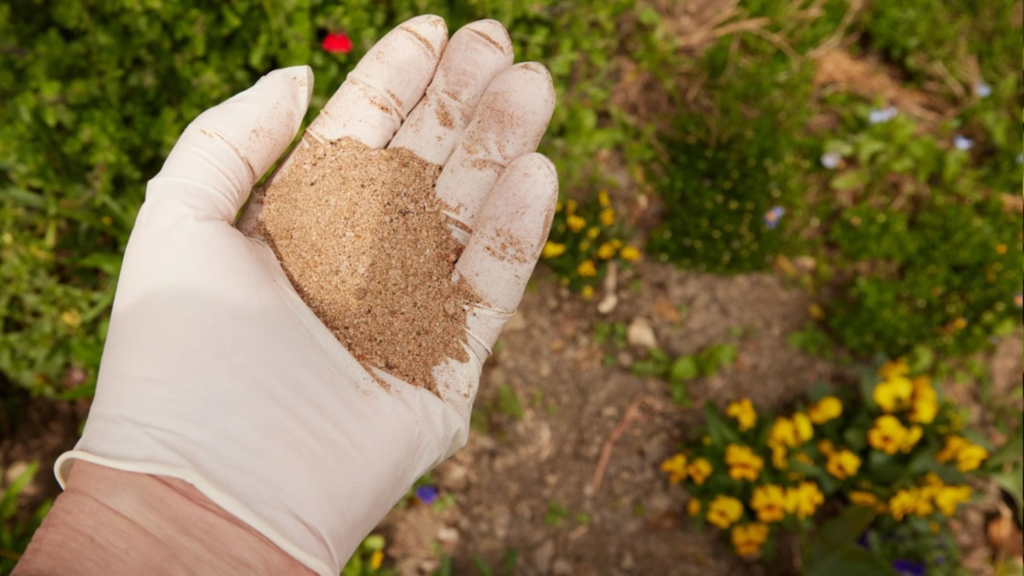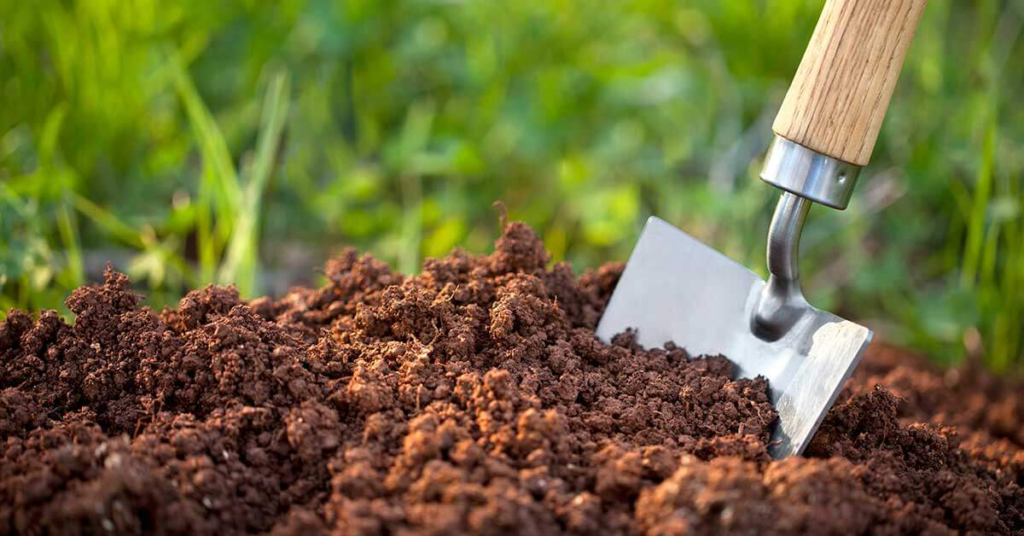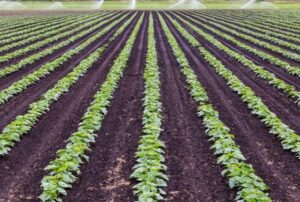Top 5 Types of Fertilizers: Which Fertilizer is Best for Plants in 2025
In the world of organic natural farming, selecting the right types of fertilizers a pivotal role in ensuring optimal plant growth and enhancing the quality of the harvest. Whether you’re a seasoned farmer or a novice, understanding the various fertilizers available in 2025 is essential for boosting plant productivity and soil health. This article explores the top 5 types of fertilizers for plants in 2025, providing detailed insights into their benefits, application methods, and how they fit into sustainable farming practices.
The Importance of Choosing the Right Fertilizer for Plants in Organic Natural Farming
When it comes to organic natural farming, soil health and plant nutrition are of utmost importance. The fertilizer you choose directly influences the growth, resilience, and yield of your crops. In modern farming practices, there are several options available, each designed to meet specific needs. From synthetic fertilizers to organic alternatives, understanding their differences, benefits, and appropriate use is key to achieving sustainable farming goals.
What Are Fertilizers and Why Are They Crucial?
Fertilizers are substances added to soil or plants to supply essential nutrients that are necessary for growth. These nutrients are typically classified into three categories:
- Macronutrients – These are the primary nutrients plants need in large quantities, including nitrogen (N), phosphorus (P), and potassium (K).
- Micronutrients – These are required in smaller amounts but are still essential for plant health, such as iron, manganese, zinc, and copper.
- Secondary Nutrients – These include calcium, magnesium, and sulfur, which are also important but needed in moderate amounts.
Selecting the right fertilizer is essential for maintaining an optimal balance of these nutrients in the soil, leading to healthier crops and increased yields.
Top 5 types of fertilizers for Plants in 2025
The market offers a wide variety of fertilizers that vary in composition, origin, and application methods. Below are the top five types of fertilizers that are expected to be the best for plants in 2025, with a focus on their relevance in organic natural farming.
1. Organic Compost Fertilizer: The Natural Solution

Compost fertilizers are made from decomposed organic matter, including plant material, food scraps, and animal waste. This types of fertilizers is gaining popularity in organic natural farming due to its environmental benefits and the long-lasting positive impact it has on soil structure and fertility.
Benefits of Organic Compost Fertilizer:
- Improved Soil Health: Compost adds valuable organic matter to the soil, improving its structure, water retention, and nutrient-holding capacity.
- Enhanced Microbial Activity: Organic compost feeds beneficial soil microbes, promoting a healthy ecosystem that aids in nutrient cycling.
- Slow Release of Nutrients: Unlike synthetic fertilizers, organic compost releases nutrients slowly, providing plants with a steady supply over time.
How to Use Organic Compost Fertilizer:
Compost can be added directly to the soil before planting or used as a top dressing during the growing season. For best results, incorporate it into the soil in the fall and let it break down over the winter, ready for planting in spring.
For more information on soil health and sustainable farming practices, check out our guide to organic natural farming.
2. Bone Meal: A High-Phosphorus Fertilizer

Bone meal is a type of organic fertilizer made from ground animal bones. It is rich in phosphorus, an essential nutrient for root development, flower formation, and overall plant health.
Benefits of Bone Meal:
- Promotes Root Growth: The high phosphorus content is essential for healthy root systems and strong plant foundations.
- Improves Flower and Fruit Production: Bone meal encourages the development of flowers and fruits, making it ideal for fruit-bearing plants.
- Slow Release: Like organic compost, bone meal releases nutrients slowly over time, reducing the risk of nutrient leaching.
How to Use Bone Meal Fertilizer:
Bone meal is best used for plants that require a phosphorus boost, such as tomatoes, peppers, and flowering plants. It can be mixed into the soil at planting time or sprinkled around established plants to promote flowering and fruiting.
To explore more about crop health and fertilizer techniques, read our article on top 10 organic farming crops for sustainable agriculture.
3. Fish Emulsion Fertilizer: A Nutrient-Rich Liquid Fertilizer

Fish emulsion is a liquid fertilizer made from fish byproducts, including fish parts and oils. It’s a powerful natural fertilizer that provides plants with essential nutrients like nitrogen, phosphorus, and potassium.
Benefits of Fish Emulsion Fertilizer:
- High Nutrient Content: Fish emulsion provides a balanced blend of essential nutrients, particularly nitrogen, which is crucial for leafy growth.
- Quick Absorption: This liquid form allows for fast absorption by plants, providing immediate nourishment.
- Supports Microbial Activity: The organic matter in fish emulsion promotes beneficial soil microbes, enhancing soil health.
How to Use Fish Emulsion Fertilizer:
Fish emulsion can be diluted with water and applied to the soil around plants or used as a foliar spray. It’s especially beneficial for leafy vegetables like lettuce, spinach, and kale, which require high nitrogen levels for optimal growth.
For a step-by-step guide on growing healthy crops, visit our page on growing crops with organic farming techniques.
4. Seaweed Fertilizer: An Oceanic Boost for Your Crops

Seaweed fertilizer, derived from marine algae, is another excellent organic option for enhancing plant growth. Rich in trace minerals, vitamins, and growth hormones, seaweed fertilizer provides an array of benefits to plants.
Benefits of Seaweed Fertilizer:
- Micronutrient-Rich: Seaweed contains a wide range of essential micronutrients that are often missing from standard fertilizers.
- Stimulates Plant Growth: Seaweed hormones, like cytokinins and auxins, promote cell division, root development, and overall plant growth.
- Improves Resistance to Stress: Seaweed helps plants withstand environmental stressors such as drought and extreme temperatures.
How to Use Seaweed Fertilizer:
Seaweed can be applied as a liquid fertilizer through foliar spraying or mixed into the soil. It’s particularly effective for improving the health of vegetables, flowers, and even fruit trees.
If you’re curious about how organic farming methods can improve crop resilience, our article on how organic natural farming transforms crop cultivation offers valuable insights.
5. Chicken Manure: A Potent Natural Fertilizer

Chicken manure is one of the most nutrient-dense organic fertilizers available. It is rich in nitrogen, phosphorus, and potassium, making it an excellent choice for plants that require a nutrient boost.
Benefits of Chicken Manure:
- High Nutrient Levels: Chicken manure contains a balanced combination of nitrogen, phosphorus, and potassium that is ideal for plant growth.
- Rich in Organic Matter: It improves soil texture, water retention, and aeration, helping to create a more fertile environment.
- Promotes Faster Growth: The nutrients in chicken manure help stimulate rapid growth, making it ideal for high-demand crops.
How to Use Chicken Manure:
Fresh chicken manure can be too strong for plants, so it’s recommended to compost it before applying it to the soil. Use it in the spring or fall, mixing it into the soil or spreading it as a top dressing.
For more on soil health and sustainable practices, refer to our guide on soil testing methods.
FAQs: Everything You Need to Know About Fertilizers
What is the best fertilizer for organic farming?
The best fertilizer for organic natural farming is typically organic compost, bone meal, fish emulsion, or seaweed fertilizer. These fertilizers provide nutrients naturally and enhance soil health without relying on synthetic chemicals. Each type has its specific benefits depending on the needs of your crops.
How often should fertilizers be applied?
Fertilizer application frequency depends on the type of crop and the nutrient needs of the soil. For most organic fertilizers, applying them once in the spring before planting and possibly again mid-season works well. Liquid fertilizers like fish emulsion may require more frequent applications.
Can I use synthetic fertilizers in organic farming?
While synthetic types of fertilizers can provide quick nutrients, they are not suitable for organic natural farming. Organic farming focuses on using natural methods to improve soil health, so synthetic fertilizers are generally avoided. Organic fertilizers, like compost and seaweed, help create a more sustainable and healthy farming system.
Conclusion
Choosing the right fertilizer for your plants in 2025 is crucial for optimizing growth, improving yields, and maintaining soil health in organic natural farming systems. Whether you opt for the slow-released nutrients of organic compost or the quick-action benefits of fish emulsion, each fertilizer offers unique advantages suited to different crop needs. As you plan your farming strategy, consider the benefits of organic fertilizers, which not only improve your crop production but also contribute to a more sustainable and eco-friendly farming environment.
For more expert advice on sustainable farming practices and organic crop care, explore our other helpful guides:
- 5 Key Insights into Intensive Subsistence Farming
- Advanced Technology Trends in Modern Farming
- Step-by-Step Guide to Starting Your Own Organic Natural Farming Journey
The right fertilizer is a cornerstone of successful organic farming, ensuring healthier plants, a stronger ecosystem, and a more sustainable future for agriculture.














Post Comment